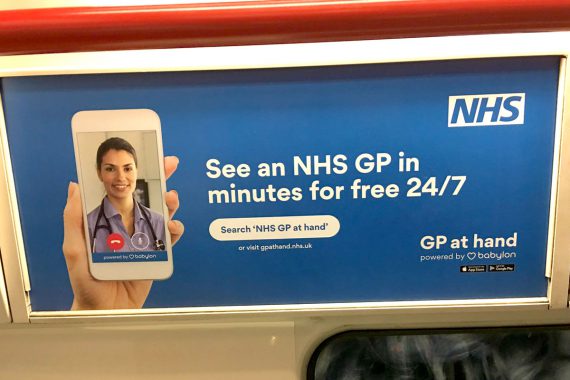PM aide’s advisory role with Babylon ‘raises conflict of interest questions’

The role of Dominic Cummings, the Prime Minister’s most senior aide, in advising digital GP company Babylon ‘raises serious questions’ around a potential conflict of interest, the shadow health secretary has said.
Mr Cummings advised the AI company – which is currently expanding its influence to cities such as Manchester – on its communications and recruitment strategies, the Guardian and Bureau of Investigative Journalism revealed.
Babylon confirmed that he advised them on their communications strategy for ten days, but added that he stopped this a full year before joining Government. They added he helped on their recruitment strategy for a ‘couple of days’ in September last year.
The Government has been promoting the use of digital healthcare, including Prime Minister Boris Johnson’s pledge of £250m to boost the use of artificial intelligence just two weeks after taking office.
Shadow health secretary Jonathan Ashworth MP told Pulse: ‘Mr Cummings’ work for this company raises serious questions about a potential conflict of interest given the firm could be in line to receive public money from this new £250m AI fund.’
A Babylon spokesperson said: ‘In July 2018, Mr. Cummings carried out a very short, one-off piece of consultancy work advising on our communications strategy. This piece of work was completed in 10 days and happened a full year before he was appointed by Government.
‘Our mission is to give accessible, affordable healthcare to everyone on the planet and we wanted an external view of our communications plans. We were also looking to appoint a PR Director and Mr. Cummings was involved in the recruitment process on a couple of days in September 2018, but no-one was appointed.’
Mr Johnson’s pledge followed a series of comments made by health secretary Matt Hancock since taking office. He has described the NHS as being ‘on the cusp of a huge health tech revolution that could transform patient experience’.
On Babylon, he said the video consultation company’s NHS service ‘can help to remove’ the ‘increasing demand in the NHS’ and that he wants the virtual GP service to expand ‘so that loads of companies can do what Babylon is doing’.
In January, the Government claimed that digital GP providers will help to ‘expand’ the GP workforce.
Sam Smith, coordinator of patient confidentiality campaign group MedConfidential, explained to Pulse: ‘This Government and NHSX is committed to using private companies to deliver NHS technology innovation, as was clear from the recent awards to Digital Innovation Hubs.
‘Any innovations they create will only be available to their paying customers – £250m of the NHS budget will be used to fund AI innovation, and then other NHS budgets will be charged to use it, per patient, forever. This double charging makes the worst of PFI look like a good deal.’
The GP app, which was initially confined to Hammersmith and Fulham, also extended to Birmingham earlier this year, but its development has been marred with controversy.
Andy Slaughter, MP for Hammersmith, told Pulse: ‘Babylon has been favoured by the health secretary and the justified concerns of GPs, CCGs and professional bodies have been dismissed by Government and the NHS.
‘Now, to find that the PM’s senior adviser has benefited personally and that Babylon may be in line for Department funding escalates fears about this relationship.
‘There should be no additional cooperation with Babylon GP at Hand until these links have been thoroughly and independently investigated.’
Pulse July survey
Take our July 2025 survey to potentially win £1.000 worth of tokens











